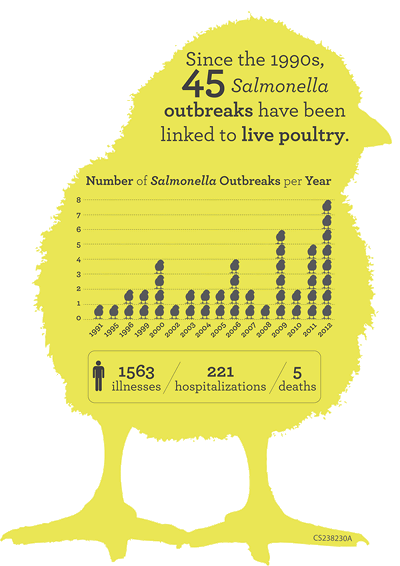
| March 2013 | |||||||||||
| Top stories | |||||||||||
| In the news | |||||||||||
| Photos | |||||||||||
| Contact us | |||||||||||
| Archive | |||||||||||
|
Harbinger of spring may pose health risk |
The soft baby chicks that are common in pet stores and petting zoos at this time of year may pose a hidden risk, particularly to children, according to the Centers for Disease Control and Prevention.
Chicks, ducklings and other live poultry that look healthy can carry Salmonella at any time of the year. Children can be exposed to this illness when they handle these birds or touch things in the animals' environments.
"Young children are especially at risk for illness because their immune systems are still developing and because they are more likely than others to put their fingers or other items into their mouths," the CDC reported on its Live Baby Poultry website.
"Live poultry may have Salmonella germs in their droppings and on their bodies (feathers, feet, and beaks) even when they appear healthy and clean. The germs can also get on cages, coops, hay, plants, and soil in the area where the birds live and roam. Additionally, the germs can be found on the hands, shoes, and clothing of those who handle the birds or work or play where they live and roam."
To reduce the risk of Salmonella infection, the CDC recommends the following:
- Wash hands thoroughly with soap and water after touching poultry or anything in the area where they live.
- Adults should supervise hand washing of young children.
- Children under five, older adults or anyone with a weak immune system should not handle live poultry.
- Do not snuggle, kiss or touch birds with the mouth.
- Do not eat or drink around live poultry.
- Keep live poultry out of the house.
- Do not give live poultry as gifts to young children.
Symptoms of Salmonella include diarrhea, vomiting, fever and abdominal cramps.
